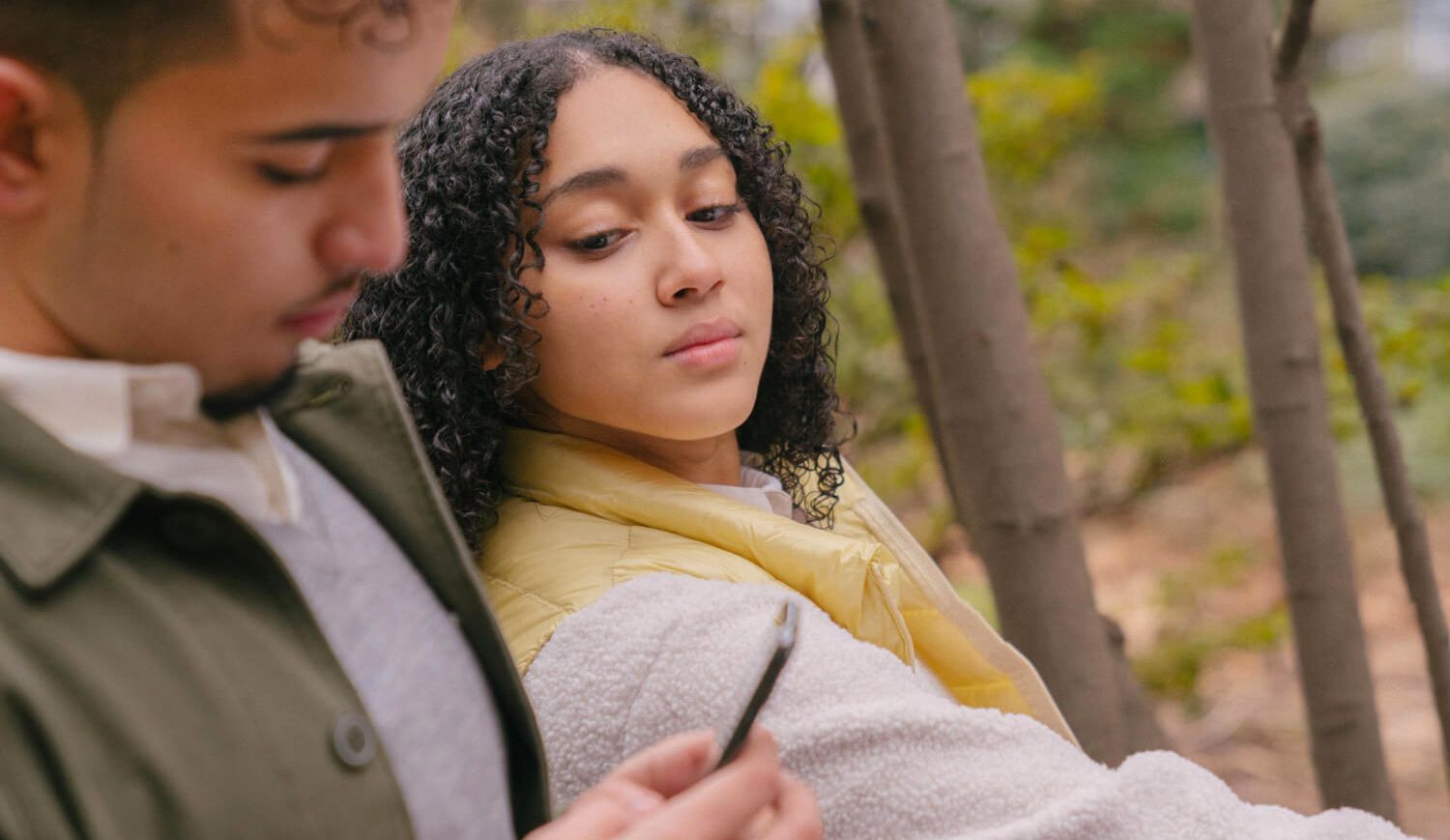Recent times have seen a surge of studies exploring the impact of ‘phubbing’ – the act of snubbing someone in favour of engaging with your phone – on our relationships. See if any of this sounds familiar.
Paying too much attention to your phone might just be harming your relationships, and it’s not just common sense anymore; researchers have recently stepped in to make us take notice. The term “phubbing,” which refers to snubbing someone while engaging with your phone, has increasingly been making headlines, especially after researchers in Turkey discovered a concerning link between phubbing and lower marriage satisfaction among couples.
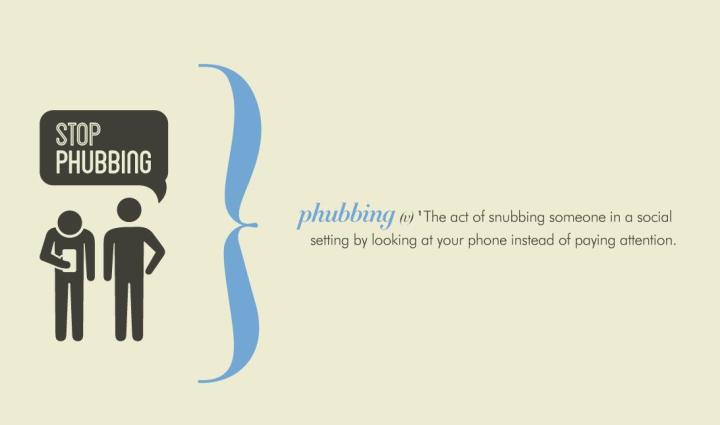
We’ve all seen it before, and have likely been on either the giving or receiving end of phubbing – or both. So what’s changed? Perhaps it’s a consequence of experiencing the cumulative effects of numerous micro-ostracisms that’s making us finally pay attention. With our phone usage veering dangerously close to becoming destructive, it begs the question: where should we draw the line when it comes to acceptable behaviour?
The word “phubbing” itself might sound like a playful creation, and that’s because it was coined in 2012 by the advertising agency McCann as part of an Australian English dictionary promotion. Back then, smartphones were still a novelty, and the idea of being snubbed by someone wielding such a little device seemed more humorous than alarming. Little did we know then that within a decade, many of our most precious relationships could be at risk.
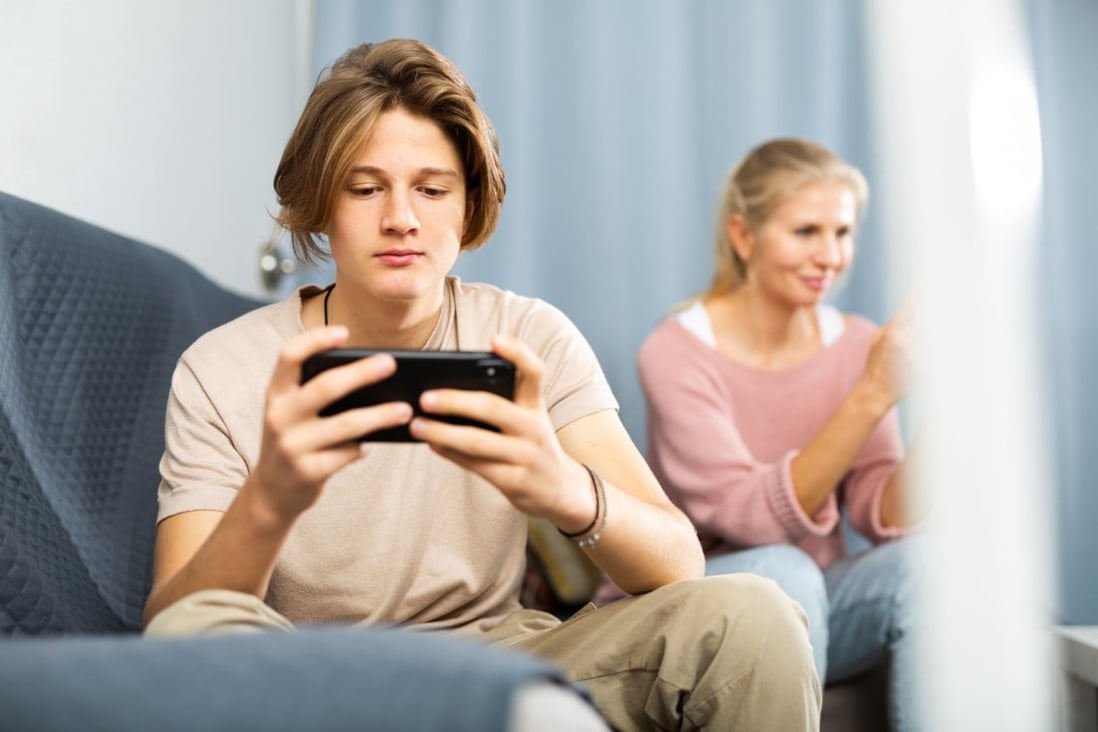
STOP PHUBBING, START CONNECTING
In recent years, extensive research has delved into the phenomenon of phubbing, and its impact on relationships has been a focal point. The findings reveal a troubling trend: phubbing, the act of engrossing ourselves in our phones while in the presence of others, has been linked to decreased marital satisfaction and emotional well-being for both partners. This of course extends in many ways to non-marital relationships, too.
Emma Seppälä, a psychologist at prestigious institutions like Stanford and Yale, and author of the Happiness Track, aptly points out the irony of phubbing. While it is seemingly intended to foster connections through social media and texting, it actually disrupts the very essence of our in-person relationships, robbing us of precious present-moment connections.
As a species, we are naturally wired to be highly attuned to others, particularly our partners. When we perceive that someone, especially our significant other, isn’t giving us their full attention, it triggers feelings of being disregarded, unheard, and disrespected.
Essentially, when you pick up your phone during a conversation with your partner, you are unconsciously prioritizing something or someone else over them. Your partner, who should be your top priority, might understandably question the message you’re sending.
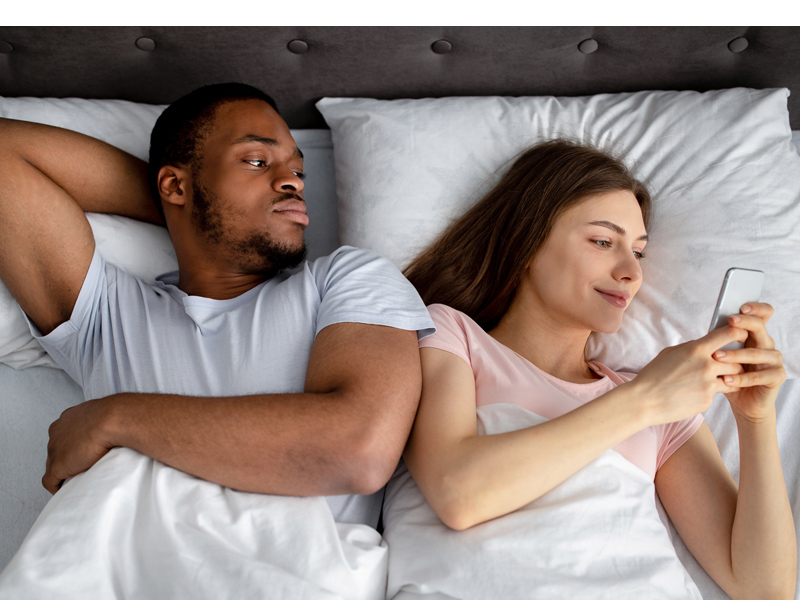
Research shows that the power of genuine, uninterrupted conversations without smartphones present cannot be overstated. Regardless of age, ethnicity, gender, or initial mood, research shows that putting away our phones during interactions leads to increased feelings of connection, more productive conversations, and greater overall happiness. Empathy and closeness are more readily experienced when smartphones are out of the picture.
At the very least, turning the phone over on a table, screen-down, sends a subtle, but meaningful signal to the other person that the in-person conversation is important to you. But why not go all the way, and just put the phone out of sight entirely?
That’s because, perhaps surprisingly, even having a phone visible on the table at all during a conversation can interfere with the depth of connection felt and the quality of the exchange. It seems that our devices, even when dormant, cast a shadow over the potential for authentic human connection.
It’s a good idea, then, to keep your phone out of sight during conversations. Don’t just turn it over. Put it away in your pocket (or purse), backpack, desk drawer, or sling bag.

ON EVERY LEVEL, WE KNOW PHUBBING IS BAD, AND YET…
MIT sociologist Sherry Turkle has dedicated the past two decades to studying how technology affects our behavior, both in solitude and within groups. Her eye-opening research has revealed a startling statistic: a whopping 89% of Americans admit to pulling out their phones during social interactions, even though 82% acknowledge that doing so negatively impacts the quality of their conversations. It appears that we are knowingly engaging in behavior that harms our interactions with others.
Consider this jaw-dropper: According to research by Wilhelm Hoffman of Chicago University, the urge to check social media is stronger than the urge for sex!
Turkle’s studies have shed light on the detrimental effects of introducing cell phones into social situations. Firstly, it diminishes the depth and quality of discussions, as people tend to focus on topics that wouldn’t mind being interrupted. Secondly, it erodes the empathic connection between individuals, leaving them feeling more disconnected and unsatisfied with the exchange.

The use of smartphones during social interactions not only damages relationships but also devalues our own experiences. A study discovered that those who used their smartphones while dining out with friends experienced less interest and enjoyment, and more boredom compared to those who refrained from doing so.
Moreover, the repercussions of phubbing extend to our mental health. It threatens four fundamental human needs: self-esteem, meaningful existence, control, and belongingness. Engaging in phubbing can make individuals feel excluded, unimportant, and ostracized.
Despite recognizing the negative consequences of phubbing when others do it to us, we remain in a state of denial when it comes to our own phone habits. Breaking free from this compulsive behavior proves challenging, even if we know it’s detrimental to our relationships and well-being.
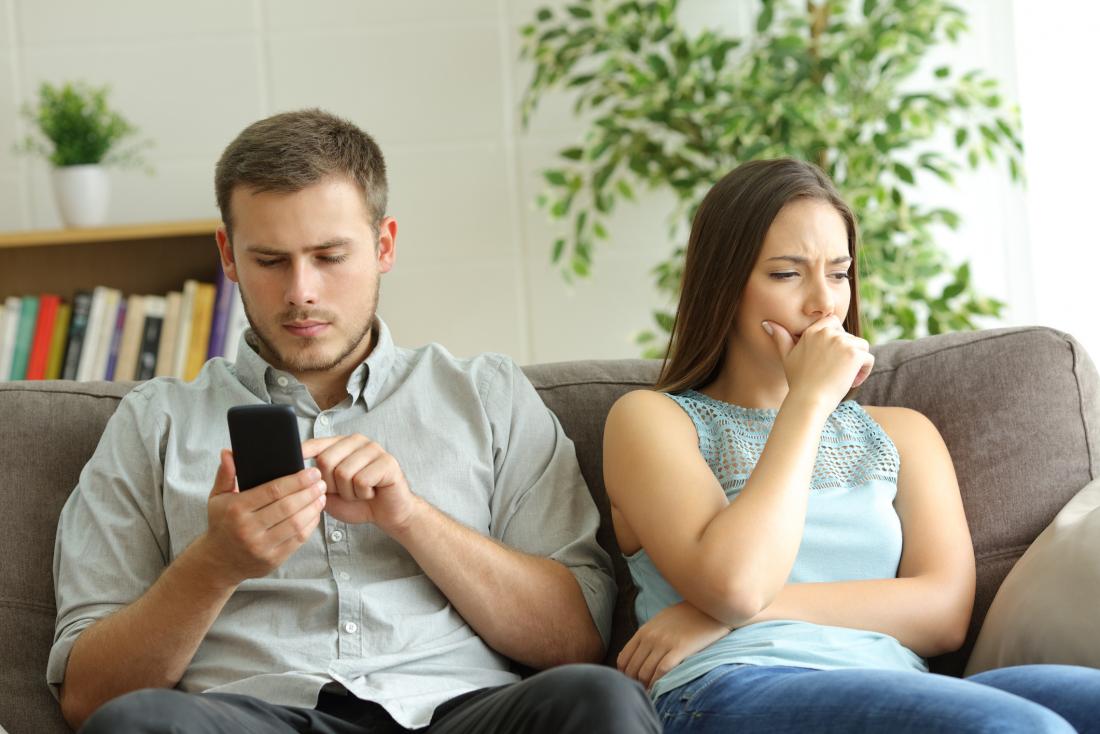
STEPS TO TAKE
Perhaps the first and even easiest step is to put your phone away – like out of reach, out of sight – during mealtimes. Make meals a no-device time. “We teach table settings,” says Laura Akano, who teaches etiquette to young people and adults at Polished Manners. “No one has created a space yet for the phone or tablet. There is no place for it at the table.”
So, the next time you sit down for a meal with a friend, coworker, or your family, remember this simple rule: keep the phone off the table. Let meals become a sacred space for genuine listening and communication.
Even when dining alone, resist the temptation to have your device as a companion. Embrace the moment, immerse yourself in your surroundings, and who knows, you might even strike up a conversation with the person sitting at the neighbouring table. Make every mealtime a device-free zone, where you can truly be present with yourself and those around you.
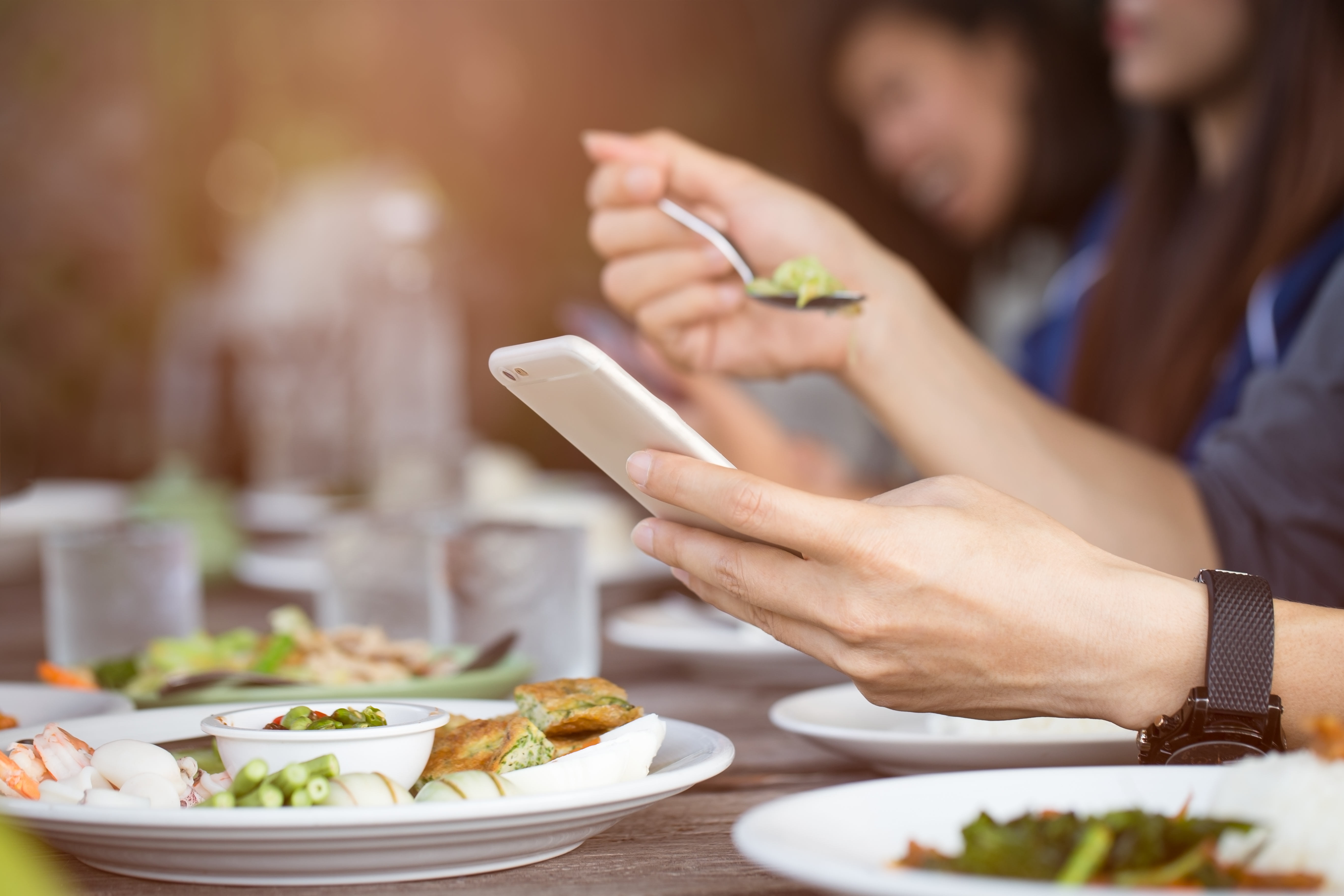
Here are some other ideas:
Create Device-Free Special Spaces at Home: Designate your car, kitchen table, bed, backyard or patio as a device-free zone. These spaces are set aside for face-to-face conversations only.
Do a Phone Fast. Stay off your phone completely for an entire day (or weekend). If you feel you just can’t do this, allocate fasting intervals of three or four hours during the day. Be off your phone (have it locked in a drawer or leave it in your car) from, say, 9:00am to 12:00pm and again from 1:00pm to 4:00pm. You can also be off your phone for the full day except for two or three pre-determined periods to check, each no longer than 15-20 minutes.
See How Often You’re Checking. Find out how much time you’re really spending on your devices can help break through any denial you might have, especially if you’re a low-key phone addict. You can install Checky, a phone habit tracker on your mobile devices, or RescueTime on your computer so you can see how often you’re checking email, social media, etc.

Don’t Replace Face-to-Face Interactions with Electronic Ones. Research consistently highlights the vital role of strong social relationships for our mental and physical well-being. While virtual connections have their place, nothing beats the intimacy and closeness of in-person interactions. True friendships involve more than online chatting – it’s about, for example, a person who will bring you lunch and checking in on you when you’re unwell. Let’s not confuse digital contact with genuine intimacy. Instead of endless social media conversations, prioritise quality time with friends. Whether it’s a lunch date, attending parties, playing sports, or engaging in some retail therapy with a friend, face-to-face interactions have proven positive effects on our mental health, lifting our spirits and reducing depression.
Keep Your Perspective. If you find yourself being phubbed, try to be understanding and not take offense. Remember, it’s a natural impulse driven by biology. Be patient and compassionate, but also communicate your feelings and set a clear boundary that you don’t appreciate phubbing during interactions. Of course, you must also follow those guidelines yourself!

Next time you’re with someone, resist the urge to reach for your phone. Instead, put it away and give them your full attention. Look them in the eyes and truly listen to what they have to say. Genuine human connection is worth embracing without distractions.


